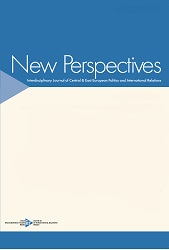Corrupt Governance: Self-defeating Anti-corruption Rhetoric and Initiatives in Russia
Corrupt Governance: Self-defeating Anti-corruption Rhetoric and Initiatives in Russia
Author(s): Elena PavlovaSubject(s): Political Philosophy, Government/Political systems, Political behavior, Sociology of Politics, Corruption - Transparency - Anti-Corruption, Rhetoric
Published by: SAGE Publications Ltd
Keywords: Anti-corruption rhetoric; corruption; governmentality; resilience; Russian Federation;
Summary/Abstract: Resilience theory has been used to describe the ‘‘bounce back’’ effect—a system’s ability to recover to its normal state after a shock. While this usually applies to systems whose survival is seen in a positive light (such as democracy), this article emphasizes the other, darker side of this phenomenon. I demonstrate how anti-corruption discourse can support certain practices that actually contribute to the resilience of corruption. By comparing the anti-corruption discourses of the Russian government and its political opposition, this article shows the interdependence and mutual reinforcement of two practices: (I) the pervasive resolution of everyday problems by corrupt methods and (II) focusing on the corruption of particular actors as the main obstacle to the development of the country and society. The effect of this interdependence is ambivalent, as both practices challenge corruption and contribute to its resilience. In effect, this becomes amode of government and I link the concept of resilience with the literature on governmentality to better illuminate the endurance of corruption in Russia despite sincere (and even well-intended) anti-corruption campaigns. This model of rethinking the resilience of corrupt practices with the special focus on anti-corruption rhetoric can be applied to other countries where corruption serves as a pivot of the social and economic system, as it does in Russia.
- Issue Year: 28/2020
- Issue No: 2
- Page Range: 205-222
- Page Count: 18
- Language: English
- Content File-PDF

